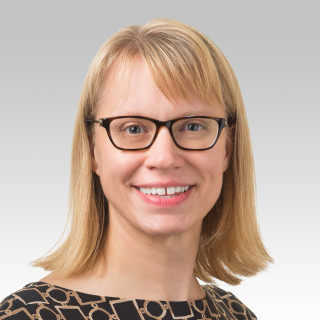The American Geriatrics Society Annual Scientific Meeting was held recently and is considered the premier educational event in geriatrics, providing the latest information on game-changing clinical practice updates and research findings in the world of geriatrics. With older adult patients imperiled by the life-threatening COVID-19 infection this year, geriatricians provided expertise in a time of great need. Below are some of the outstanding works presented at AGS with my “Bottom Lines” for practical use with older adult patients.
- Delirium is a common presenting sign of COVID-19 among older adults. Of those older adults presenting with symptoms, 56% experienced fever, 51% shortness of breath, 50% cough, and 28% delirium. Delirium and COVID-19 were present sometimes in the absence of “Classic signs.” Bottom Line: Delirium recognition should be a standard part of COVID-19 diagnostic algorithms.
- In a study of nursing home residents with COVID-19, age alone does not sufficiently explain how older adults will respond to COVID-19. Severe cognitive impairment and functional impairments were more indicative.
Bottom Line: Stop Ageism! Look to geriatric assessments of cognition and function to risk stratify COVID-19 outcomes.
- Amyloid PET Scans are not needed as a work-up for memory loss. In a multisite study of amyloid PET scans in 343 imaging centers and 11,409 Medicare benificiaries (>65 yo). Only changed the clinical diagnosis from non-alzheimer’s to alzheimer’s disease in 11% of people. Of those with mild cognitive impairment and a positive amyloid PET scan, Amyloid PET scans lead to large increases in prescribing FDA non-approved drugs in Mild Cognitive Impairment. Bottom Line: Don’t order Amyloid PET Scans as part of a memory loss work-up and don’t prescribe medications to prevent alzheimers (e.g. donepezil, memantine) for patients with mild cognitive impairment.
- Deprescribing is necessary. The Prescribing Cascade is Real. Older adults are started on Calcium Channel Blockers which cause edema as a common side effect. Providers then common start diuretics to decrease the edema. Bottom Line: Providers should ask - could these new symptoms be caused by a drug they are taking rather than a medical condition? Also consider if a non-medication approach might be a possibility.
- Remain skeptical about the effectiveness of the medication Aducanumab in treating Alzheimer’s Disease. In March 2019, the trials were stopped due to futility. FDA Statistical/Advisory Committees did not find it effective. Yet, it has applied for FDA approval in June 2021 and is pushing to become the standard of care. The GeriPal Podcast link is great on explaining it more. Bottom line: Do not prescribe Aducanumab for Alzheimer’s.
- “Firearm Retirement.” The average age of initial firearm ownership is 22 years old and most often purchased for protection (68%). However, as people age and develop diseases like Alzheimer’s or related dementias, it may not be safe to keep a gun in the home. Bottom Line: Providers should inquire to older adults about firearm ownership and when is a good time to “retire firearms.” Anticipate individual heterogeneity and include family and people in the home in the discussion.
- In deciding on preventative care in older adults (e.g. mammography, diabetes targets, colonoscopy), age alone is insufficient. Significant heterogeneity in frailty status exist given same ages and comorbidities. Both frailty and comorbidities are independently association with long term morbidity. Bottom Line: Stop Ageism! Preventative Care of older adults should be informed by comorbidities and frailty instead of age alone.
- Loneliness and isolation is common among older adults and was exacerbated due to COVID-19 restrictions. Voice activated personal assistance technology, such as Google Home or Amazon Alexa, can provide entertainment, companionship, medication/exercise reminders, and home control to support older adults. Bottom Line: Voice activated technology has the potential to decrease loneliness in homebound older adults
- Being physically active is critical to preventing memory loss. In national study of those at high risk of dementia, over half did not engage in recommended physical activity. Most were capable of being active, but chose to be inactive. Bottom Line: Physical activity is one of the best ways to prevent memory loss yet older adults chose not to exercise. Providers should heavily encourage physical activity with patients
The American Geriatrics Society Annual Meeting has always been a great experience with abundant opportunities to learn about cutting-edge research from experts in the field of geriatrics. Taking care of older adults can be a daunting experience, and 2020 was no exception. Most attendees felt recharged and energized following the meeting. Consider attending the 2022 AGS Annual Meeting, which will be in Orlando!







